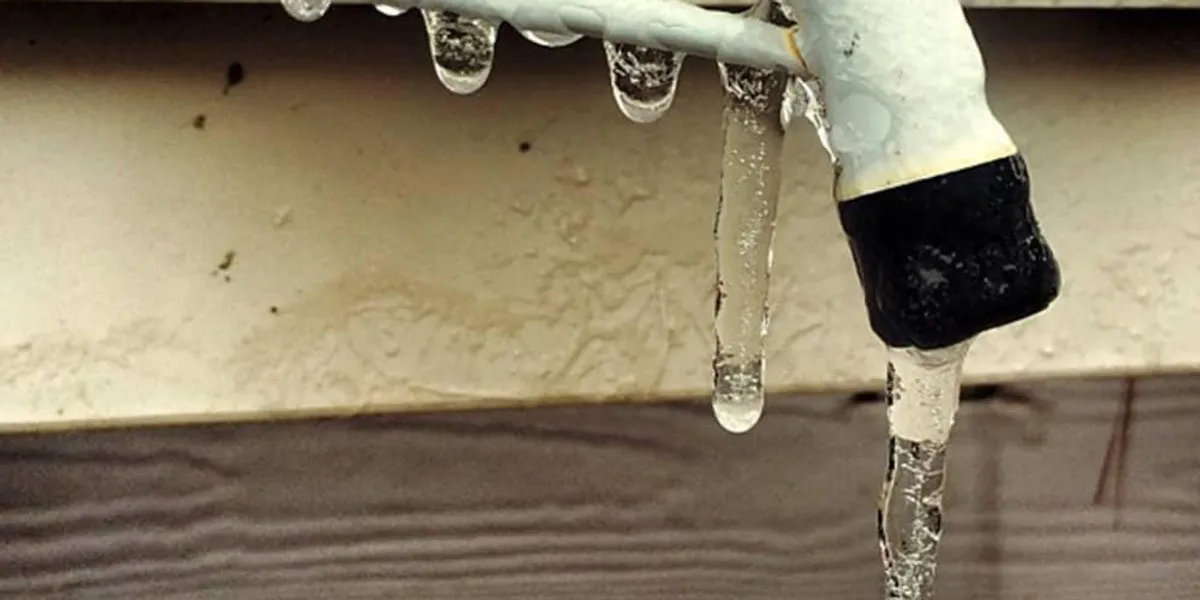What are your opinions about Helpful Tips to Prevent Frozen Pipes this Winter?

Winter can ruin your pipes, especially by freezing pipes. Here's just how to stop it from occurring and what to do if it does.
Introduction
As temperature levels decline, the danger of frozen pipelines boosts, possibly resulting in costly repair work and water damage. Recognizing how to avoid icy pipelines is important for home owners in cold climates.
Prevention Tips
Protecting at risk pipelines
Wrap pipes in insulation sleeves or use heat tape to safeguard them from freezing temperature levels. Concentrate on pipelines in unheated or outside locations of the home.
Home heating methods
Maintain interior areas sufficiently heated up, particularly areas with plumbing. Open cabinet doors to permit cozy air to flow around pipelines under sinks.
Exactly how to identify icy pipelines
Try to find decreased water flow from taps, unusual odors or sounds from pipelines, and visible frost on revealed pipelines.
Long-Term Solutions
Structural changes
Take into consideration rerouting pipes far from exterior walls or unheated locations. Add added insulation to attics, cellars, and crawl spaces.
Upgrading insulation
Buy premium insulation for pipes, attics, and wall surfaces. Appropriate insulation assists keep constant temperature levels and reduces the danger of icy pipes.
Securing Outdoor Plumbing
Yard hoses and outdoor taps
Separate and drain garden pipes prior to winter season. Mount frost-proof faucets or cover outdoor faucets with protected caps.
Comprehending Icy Pipelines
What creates pipelines to ice up?
Pipes freeze when exposed to temperatures listed below 32 ° F (0 ° C) for extended periods. As water inside the pipes ices up, it increases, taxing the pipe wall surfaces and potentially triggering them to break.
Threats and damages
Frozen pipelines can lead to water supply interruptions, residential or commercial property damage, and expensive repair work. Burst pipes can flood homes and trigger extensive architectural damage.
Signs of Frozen Pipeline
Recognizing frozen pipelines early can prevent them from bursting.
What to Do If Your Pipes Freeze
Immediate actions to take
If you presume icy pipes, maintain taps open up to soothe pressure as the ice melts. Make use of a hairdryer or towels soaked in warm water to thaw pipes gradually.
Final thought
Preventing icy pipes needs aggressive actions and quick actions. By understanding the reasons, signs, and safety nets, homeowners can safeguard their pipes throughout cold weather.
6 Proven Ways to Prevent Frozen Pipes and Protect Your Home
Disconnect and Drain Garden Hoses
Before winter arrives, start by disconnecting your garden hoses and draining any remaining water. Close the shut-off valves that supply outdoor hose bibs and leave the outdoor faucet open to allow any residual water to drain. For extra protection, consider using faucet covers throughout the colder months. It’s also important to drain water from any sprinkler supply lines following the manufacturer’s directions.
Insulate Exposed Pipes
Insulating your pipes is an effective way to prevent freezing. Pipe insulation is readily available at home improvement stores and is relatively inexpensive. Pay close attention to pipes in unheated areas such as the attic, basement, crawl spaces, or garage. Apply foam insulation generously to create a buffer against the cold. You can also wrap your pipes in heat tape or thermostat-controlled heat cables for added warmth.
Seal Air Leaks
Inspect your home for any cracks or openings that could let in cold air. Seal any holes around the piping in interior or exterior walls, as well as the sill plates where your home rests on its foundation. Additionally, make sure to keep your garage door closed unless you’re entering or exiting. Leaving it open creates a significant air leak that can lead to frozen pipes.
Allow Warm Air Circulation
During cold snaps, it’s essential to allow warm air to circulate evenly throughout your home. Leave interior doors ajar to promote better airflow. Open kitchen and bathroom cabinets to help distribute heat consistently around the rooms. If you have small children or pets, be sure to remove any household chemicals or potentially harmful cleaners from open cabinets for safety.
Let Faucets Drip
A small trickle of water can make a big difference in preventing ice formation inside your pipes. When temperatures drop significantly, start a drip of water from all faucets served by exposed pipes. This continuous flow helps prevent the water from freezing. Additionally, running a few faucets slightly can relieve pressure inside the pipes, reducing the chances of a rupture if the water inside does freeze.
https://choateshvac.com/6-proven-ways-to-prevent-frozen-pipes-and-protect-your-home/

I stumbled upon that post on Prevent Frozen Pipes while doing a search on the web. You should take a moment to promote this write-up if you liked it. Thanks so much for your time invested reading it.
Call Today